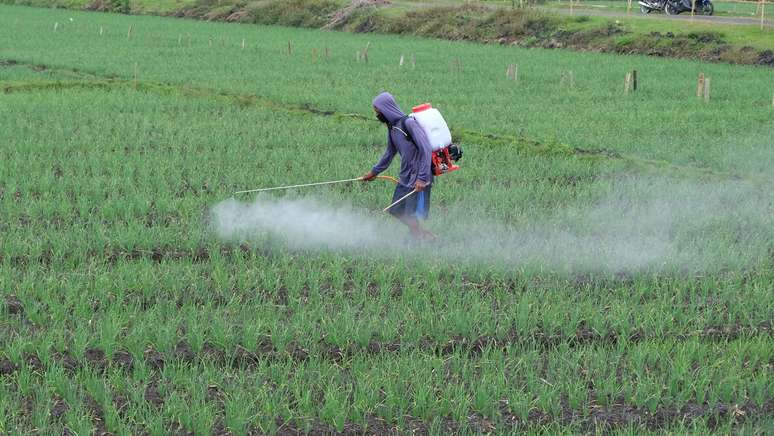The maker of the pesticide paraquat, Sygenta, faces legal action from farmers who claimed it had developed Parkinson’s disease. You need to do research
British company Sygenta is facing legal action over a pesticide called Paraquat, allegedly linked to cases of Parkinson’s. In the most recent chapter of this story, the manufacturer admitted that during studies to determine whether there was a relationship to the disease, it did not check whether any former workers had the disease, only analyzed the causes of death of its former employees.
- Study reveals which neurons die during Parkinson’s disease
- Coffee leaves can help treat Parkinson’s disease
Following the case, Charity Parkinson’s UK (a research and support charity for Parkinson’s disease in the UK) highlights the need for more in-depth and independent research into any link between pesticides – which includes paraquat – and Parkinson’s disease.
Lawsuit against pesticide manufacturer
The lawsuit began with farmer Larry Wyles, 80, who has used the pesticide on his land for more than 20 years. He was diagnosed with Parkinson’s disease in 2002 and argues that the company in question should be banned from producing the pesticide.
The action had the support of Julie Plumley, whose father was a farmer, who also used paraquat and over the years developed Parkinson’s disease.
Study on pesticides and Parkinson’s
To escape the charges, Syngenta conducted a study with workers involved in the production of Paraquat. The monitoring focused on data from 2011 and 2021, and took into account the causes of death reported on the death certificates of former employees.
Based on this information, the company argued that there was no relationship between the substance it produced and the development of Parkinson’s disease, concluding that it had “no increased risk of developing Parkinson’s disease in the workforce producing paraquat.” .

To the The Guardiana company spokesperson sent a note that reads as follows: “We care deeply about the health and well-being of farmers and are committed to providing safe and effective products. As a responsible company, we spend millions of dollars testing our products for make them safe for their intended use.”
Syngenta defends itself by stating that no study has “established a causal link between Paraquat and Parkinson’s disease”, but the research cited in the book Put an end to Parkinson’s disease (2020) suggest that paraquat increases the risk of Parkinson’s by 150%.
A report published in USP Journal highlights that the increased onset of Parkinson’s disease is not associated with exposure to high doses, but with chronic exposure to low doses.
Paraquat is banned in Brazil
The USP material recalls that the use of the pesticide Paraquat is already banned in more than 30 countries, including Brazil: the substance was banned by Anvisa (National Health Surveillance Agency) in 2017.
Source: BBC, USP Journal, The Guardian, BMJ, Put an end to Parkinson’s disease
Trends on Canaltech:
- The faults show that the Pacific tectonic plate is breaking apart
- The asteroid discovered 3 days ago passed close to Earth this Monday (12th)
- A strong solar flare causes a radio blackout in South America
- The company launches M.2 SCSI SSDs for older systems
- Super Bowl 2024 Trailer | Deadpool, Tornado and the Wicked Witch of the West
- The 45 most anticipated films of 2024
Source: Terra
Rose James is a Gossipify movie and series reviewer known for her in-depth analysis and unique perspective on the latest releases. With a background in film studies, she provides engaging and informative reviews, and keeps readers up to date with industry trends and emerging talents.






